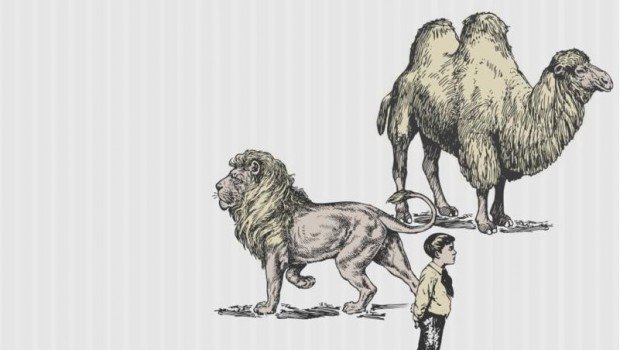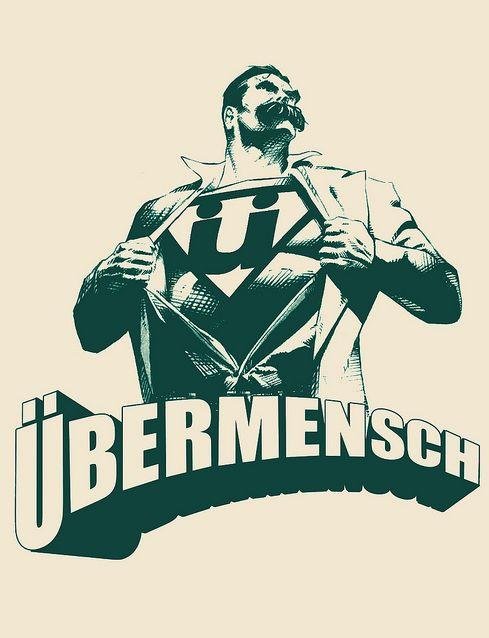Nietzsche: Thus Spoke Zarathustra: Opinion and summary

I am slowly interfering in the thought and work of this great German philosopher, you will see the philosophy that Nietzsche poses is very complex to accept to some extent atheist, since his philosophy exposes the “Superhuman” an idea in which he defines that it is important to remove the God's principles of the human body, because his criterion to have kindness or a fervent belief towards what he calls faith or miracles makes us weak by giving us a path guided by dogmatic uncertainty. This is one of the qualities by which his thought seems interesting to me because, from my perspective the theological, dogmatic and mystical environment is a quality that has struck me in an artistic sense in his works, paintings, writings and poems.


That which you can not see but that belief propels others beyond touching the sky with their high spirits, waiting for the answer of uncertainty. From a poetic point of view see the works of this philosopher makes contrast with it and I like it because there is brilliance and brilliance in how that superior individualism relates to that image that he calls “superhuman” now he raises that much of the world is weak by to believe in that kind of values, undervaluing them without adding anything, I would like to start with the summary of “Thus Spoke Zarathustra.”
Nietzsche uses as protagonist, the image of the Persian philosopher Zoroaster to further develop his philosophical doctrine, narrates how Zarathustra (Zoroaster) makes speeches before men about his doctrine by dividing it into 4 parts:

1- In the first part (and one of my favorites for its metaphorical explanation points to the growth and understanding of man) he tells us about the 3 figures of the spirit, placing as a plane the desert which man hovers and must cross. The first figure is the camel that bears on his back the dominance that man has over morals carrying this as a burden, the second figure is the lion this is freed from that burden is free and creates a new moral, but it is almost impossible to conquer the desert not only need to conquer and that takes us to the 3rd figure the child creating values through play and innocence, proposing that the virtues that have become a tradition are more than an impediment blocking the understanding of “true values”

2-In the second part this relates the second descent of Zaratrusta, because the first descent and seeing that his speech was not well received by many of the people this returns to his mountain. He attacks fervently those who oppose free moral ideal, but this second downfall is also a failure to take their radical method to reach the ears of others as something already received as a crazy and mocking the misunderstood by men go back to the mountain.
3- The third part emphasizes the “eternal return” on the philosophical ideal by painting it from speeches allegories and symbolism, the "eternal return" includes both failures and successes manages to "wake up" from the state of trance in which it is, knowing that, although man is again monkey, again Zarathustra will appear to preach the Übermensch (superhuman), again will be given account of what is the "eternal return" and again awaken.

4- The fourth and last part we see a Zaratrusta discouraged before the failure of his mission of not reaching all ears but the necessary calls as “superhuman" those who decided to take these values and break free from traditional constraints imposed by the perfectionism of God although once overcome the man not all fall and only those that show that conviction by means of the “will" will be worthy.


I remember this theme perfectly in the material "En torno a la Crítica de la Noción de Sujeto en F. Nietzsche" by the author María Clara Salas, National Open University, Caracas, Registro 230-1990. Based on the book Cfr. F. Nietzsche, "Thus spoke Zarathustra". Alianza, Madrid 1975.
Nietzsche painted? I was not aware! I do enjoy his musical compositions, however :) You did a good job, here. Perhaps, you'll enjoy these posts of mine:
Twin Souls: Irish Poet, Oscar Wilde, and German Philosopher, Friedrich Nietzsche
&
My Conversation with Rilke & Nietzsche
Wow thanks and no no, at all, I was referring to how other artists interpret it for their paintings due to the impact they had through their literary works or mistakenly, as a hitler when I use their vision to justify their genocide, and I'm glad you I like my post thank you for visiting, and of course I'll read your post.
Thanks, for elaborating & for your attention. Hope you enjoy posts ✌🏼
Congratulations! This post has been upvoted from the communal account, @minnowsupport, by stairway2heaven from the Minnow Support Project. It's a witness project run by aggroed, ausbitbank, teamsteem, theprophet0, someguy123, neoxian, followbtcnews, and netuoso. The goal is to help Steemit grow by supporting Minnows. Please find us at the Peace, Abundance, and Liberty Network (PALnet) Discord Channel. It's a completely public and open space to all members of the Steemit community who voluntarily choose to be there.
If you would like to delegate to the Minnow Support Project you can do so by clicking on the following links: 50SP, 100SP, 250SP, 500SP, 1000SP, 5000SP.
Be sure to leave at least 50SP undelegated on your account.